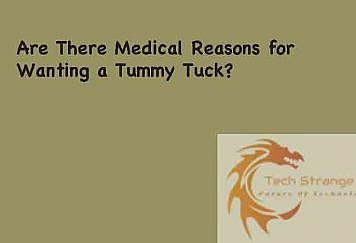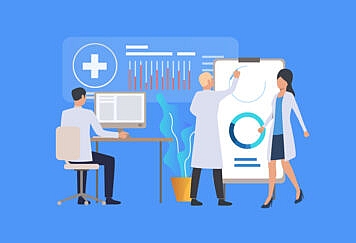When you get into a car accident, even mild injuries can affect every part of your life, including your ability to work. The financial strains of an accident can become challenging to manage.
A lot of people don’t even initially realize if they’re hurt following involvement in an accident. Your adrenaline is running high, and you might not feel pain or injuries occurring beneath the surface
It can sometimes take weeks for injuries to become apparent after an accident, which is why personal injury lawyers will tell you that you should seek medical care even if you think you’re fine initially.
You want to start that paper trail of seeing a medical provider in case accidents do show up days or more after your accident.
With that in mind, the following are symptoms to be on the lookout for after an accident.
Headaches
If you start to experience new or unusual headaches after a car accident, it’s a symptom that you should get checked out immediately.
Headaches are somewhat common among injuries that are considered late-onset. Even if you didn’t hit your head during an accident, you might develop headaches hours, days, or a week later.
If you already dealt with headaches before the accident, you could notice they become more persistent, or the pain is worse.
Neurologists sometimes call these headaches post-traumatic headaches.
Post-traumatic headaches can also occur with neck pain.
Concussion headaches are caused by a jolt or blow to the head, and a concussion affects how the brain works. The brain might hit the skull walls during an accident, leading to bruising, and that can create headaches.
Migraine headaches that are the result of a concussion often come with other symptoms like light and sound sensitivity, nausea, vomiting, dizziness, confusion, and ringing in the ears. These headaches might also include memory loss, sleep problems, anxiety, and slurred speech.
If the muscles of the neck or upper back are injured or strained, this can also lead to headaches.
Whiplash headaches occur when your neck muscles and ligaments experience strain from the sudden forced movement of the head and neck that can strain the soft tissue. The headaches usually start at the base of the skull and might include stiffness or neck pain, dizziness, fatigue, and visual disturbances.
A fracture headache will usually occur right away and feel intense.
Even a mild headache following a car accident needs immediate attention to make sure you haven’t sustained severe brain damage.
Pain in the Neck and Shoulders
If you’re in a car accident and you then have neck pain, it may be due to a whiplash injury. Most symptoms of whiplash include discomfort, not being able to freely move the neck and stiffness.
As well as whiplash, the neck and shoulder have soft tissues that are called tendons that keep your bones and muscles in place. The force of an accident can tear the tendons and create neck strain or a rotator cuff tear.
Abdominal Pain or Nausea
Nausea can be a symptom of brain injuries, so that’s always something to be mindful of after an accident. Nausea that also occurs with abdominal pain could be a sign of damage to the internal organs, which can be a medical emergency. When you’re in an accident, it’s possible for your abdomen to slam into your steering wheel or into the dashboard.
That can injure organs like the kidneys or liver.
If you have diarrhea, bloating, or vomiting, you need immediate medical attention.
Following the accident, you should also look for abdominal bruises, which can indicate bleeding or damaged organs.
Numbness or Tingling
Numbness and tingling are common accident injury symptoms, and they may need diagnostic imaging.
Numbness or tingling can occur because of an inflamed muscle, herniated disc, or a pinched nerve.
If you have tingling paired with hip pain, it could mean your pelvis is injured.
Spinal cord injuries can also cause tingling and numbness. Spinal cord injuries will affect communication between your brain and your body, leading to strange sensations like tingling.
If you have numbness or tingling, go to your doctor, and they’ll likely perform an MRI or X-ray.
Changes in Mood or Behavior
Mood and behavioral changes are something to watch for after an accident, whether in yourself or a loved one.
If someone is in an accident and then appears to have changes in mood or behavior, it can indicate a concussion, depression, anxiety disorder, or post-traumatic stress disorder.
Becoming withdrawn, irritable, or having mood swings might be a red flag to watch for.
Along with those symptoms, similarly, a lack of appetite or changes in eating and sleeping habits overall might mean that a person needs to seek health care after an accident.
Vision Changes
If you’re in an accident and then you experience vision changes, like blurred vision or double vision, or dizziness, then you should talk to a doctor. These symptoms can be related to post-traumatic stress, whiplash, a concussion, or something else.
For some people, these symptoms may resolve over the weeks after an accident, but you still need to talk to a health professional.
Memory Loss or Brain Fog
If you’re in an accident and then you have brain fog, trouble concentrating, or memory loss, it could be from a head injury or concussion or because of stress.
You might have a hard time finishing easy tasks or carrying on a conversation.
Traumatic head injuries can make it challenging to express yourself or to form thoughts.
The post-concussion syndrome could be the root cause of some of these symptoms, and it can last for months or sometimes even years.
Swelling or Stiffness
Finally, if you have any swelling or stiffness, talk to your doctor. These are common symptoms, and they can stem from sprains, damaged tissue, or pulled muscles, but you want to make sure there’s nothing else going on. A doctor can diagnose the underlying issue and tell you the best steps to take to help it heal.
You may also need physical therapy if you’re struggling with your range of motion after an accident.
Follow TechStrange for more Technology, Business, and Digital Marketing News.





